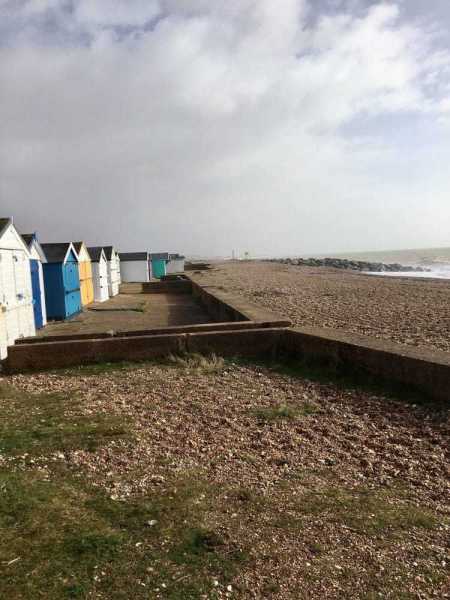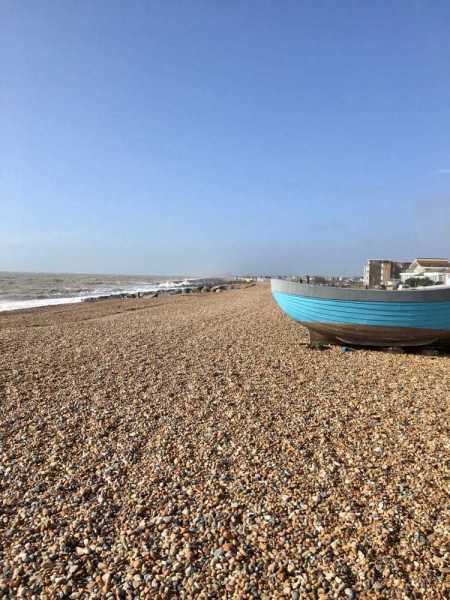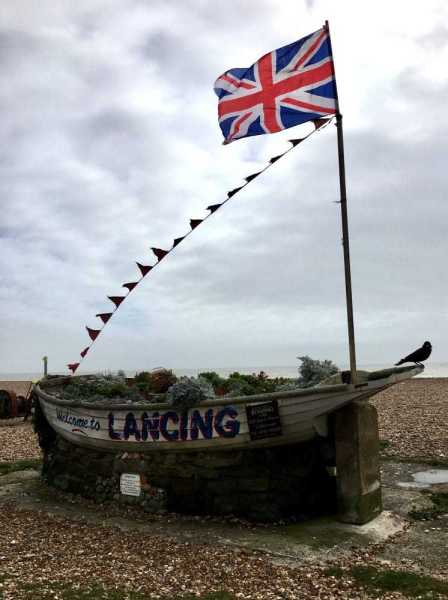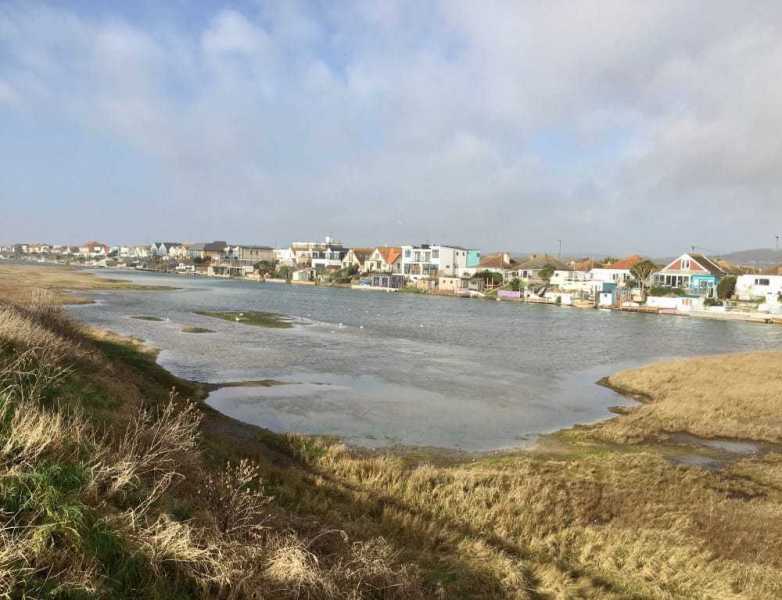Matthew Paul celebrates the life and poetry of Ted Walker
‘Ted who?’, you might ask. I did 15 years ago when the poet Roy Kelly gave me a copy of Walker’s first collection. When Walker died in 2004, his Guardian obituarist remarked that, ‘It is not surprising that his most substantial works are his autobiographical volumes’.[1]The Guardian His Times obituarist similarly opined that, ‘He will perhaps be best remembered for his moving autobiographical volume The Last of England’.[2]Published 26 March 2004. I am indebted to Chris Hardy for enabling access to a photocopy of the obituary His prose earned him (jointly) the JR Ackerley Prize, for his astonishing memoir of childhood, The High Path,[3] Routledge & Kegan Paul, 1982; re-issued by Slightly Foxed Editions in 2010 but Walker started – and ended – as a poet, with five collections published by Cape from 1965 to 1978, before a long hiatus until his coda. These collections were good enough to garner an Eric Gregory Award (1964), the Cholmondeley (1966) and the Alice Hunt Bartlett Prize (1967), and for Al Alvarez to include him in the second, 1966 edition of The New Poetry; yet his poetry is largely – and unjustly – forgotten now.
Lancing sits above a long shingle beach between its larger neighbours of Worthing and Shoreham-by-Sea. It was to here that Walker’s father cycled from Birmingham in 1932, during the Depression, in search of work. A carpenter, he established himself among the local boat-builders quickly enough to marry his fiancée on Christmas Eve 1933. Their first-born, Edward Joseph, arrived 11 months later, ‘in the room that was to be [his] for the next eighteen years’,[4] The High Path, p.17 in a small house on the Brighton Road.[5]Part of the A259 which runs for 118 miles along much of south-east England’s coastline
In The High Path, Walker describes a meagre but largely happy childhood: ‘The living-room was more constricted than any I have been in since; we had no option but to be a close family.’[6]Ibid., p.26 The death of his sister Ruth, aged just six weeks, had a great impact: his mother was confined ‘to a mental hospital where she suffered enormously’.[7]Ibid., p.18 The outbreak of war put Lancing at risk of invasion. Walker’s father and Uncle Jack – his father’s parents and siblings had all moved down from the Midlands by then – joined the Home Guard, and the beach was tank-trapped and mined. His Uncle George was killed in action in North Africa. Later, one ‘terrible afternoon […] a policeman rapped at [their] seldom-opened front door’[8]Ibid., p.94 to say that Jack, ‘the least convincing pseudo-soldier in Major Moate’s improbable squad’,[9]Ibid., p.91 and who had evidently been a chancer, had been killed by a mine in a cordoned-off area where he ‘had been to gather firewood from one of the few houses still standing beside the road to the shipyard’.[10]Ibid
Aged ten, Walker started French lessons with ‘Mr Jupp’ (‘Short, bald, fat, old, friendly and enthusiastically garrulous’)[11]Ibid., p.130 in preparation for the ‘eleven-plus examination [which] took place on Empire Day’,[12]Ibid., p.147 1945: ‘I knew that the rest of my life would progress according to how well or badly I performed.’[13]Ibid He passed and transferred to Steyning Grammar School; then to St John’s College, Cambridge, to read Modern Languages (French and Spanish, primarily).
He married his childhood sweetheart, Lorna, in 1956, having proposed to her seven years before when they were just fifteen. Both became schoolteachers, and had four children. Like Sylvia Plath, Walker’s initial poetry publications credits included The New Yorker, the first of which, along with some short stories, earned him enough money to buy a house in Sussex, where he and Lorna lived until her death from cancer in the mid-’80s, as he went on to describe very movingly in The Last of England. In 1988, he married Lorna’s best friend, Audrey, also recently widowed, and, sick of Thatcher’s Britain, they mostly lived in Spain until he died.
Walker’s emotions surface throughout his oeuvre, but were never fresher than in this first collection
Walker’s first collection, Fox on a Barn Door,[14]Jonathan Cape, 1965; subtitled – Ginsberg-like – ‘Poems 1963–4’ unsurprisingly contains many poems set in Lancing. The first 11 map out the shoreline which Walker clearly knew intimately and loved, beginning with ‘By the Saltings’,[15] Fox on a Barn Door, p.13 whose lively terza rima propels the poem from its lovely opening, “When the wind is in the thrift / gently, down by the saltings”, to an existential ending: “alone / as you are and as fearful // as some crab beneath some stone.” The second poem (which enabled the house purchase) is the book’s major achievement: ‘Breakwaters’;[16]Ibid., pp.14–15 eight five-line stanzas which, from the unsettling first line – “Elms are bad, sinister trees” – onwards, cover considerably more than the groynes’ physicality:
Ultimate green of eelgrass
soothes with the comfort of hair
all the tiny agonies
that crawl in hidden places
and sing when the tide is low
and death is not imminent,
scrabbling in an eczema
of pink and white barnacles
and mussels of midnight blue.
Through deployment of powerful adjectives and by making passive actions as prominent as active ones, the empiricist influence of the Movement poets and Walker’s slightly older contemporaries Plath and Hughes might be detected among these lines, including that acutely sensory “scrabbling in an eczema / of pink and white barnacles / and mussels of midnight blue”, though he had already developed his own distinctive voice. Walker then describes the scene as, “Terrifying as altars / by night, black, a sea-Stonehenge”, and personifies the sea and the breakwaters:
In his calm he will lap them,
then batter their waists away,
emphasize their Celtic heads.
And when they are old and raddled,
thin, thin as a Belsen arm,
they will stand bare and skinny
and their stringent, hard old hearts
will disregard his knocking.
Dour, malignant to the core,
they will try to outlive him.
The angst caused by the Cold War is undoubtedly implicit in the poem, with its allusion to the horrors of the war he lived through as a boy. Whilst we might now question the ethics of the Belsen reference, the Holocaust had long been on his mind. In The High Path Walker writes, “One Saturday morning [in 1945] my father made me look at the Daily Mirror photographs of Belsen. I saw lines of skeletons, each one with a vellum of skin stretched tight and membranous as a bat’s wing. […] ‘This must never be allowed to happen again,’ my father said quietly before walking away. He made this seem like my responsibility: which, of course, it is.”[17]The High Path, p.144
‘Porpoises’[18]Fox on a Barn Door, pp.20–21 builds from a lulling, though characteristically inventive opening – ‘Sometimes in summer the sea / looks infrangible; dull steel / dimpled like a dinner-gong’ – to another disconcerting, Darwinian ending:
And sometimes, along the shore,
you come across one stranded
like a great, obscene, black slug.
Age, exhaustion, impotence,
but no disease can kill them.
They die when they fall behind.
This run of dark, liminal poems finds its apotheosis in ‘Lancing Beach’,[19]Ibid., pp.25–26 his first attempt in verse to address the death of his beloved Uncle Jack:
It was a sea-leukaemia
and the sea convulsed with it,
throwing up silver brit
and the body of a man.
Here it was they found him, here
with little eels in his hair,
and from his unstoppered husk
fluid flowed. Balls of black flies
rolled in the pits of his eyes.
One wonders how long and hard Walker deliberated before drafting such unflinching imagery, let alone seeking its publication. He ends the poem with words for himself: “The grief I cast is for me. / There is a smell of sickness – / I must come to terms with this.” Walker’s emotions surface throughout his oeuvre, but were never fresher than in this first collection chocker with imaginative and potent description.
Walker’s second collection, The Solitaries (subtitled ‘Poems 1964–5’)[20]Jonathan Cape, 1967 broadly continues where Fox on a Barn Door ended. Whilst some of the subject-matter might be slighter, his style is eccentrically ruminative, pessimistic and intriguing, and contains his trademark gift for compelling, surprising phrases and lines. Even in ‘Crocuses’,[21]The Solitaries, p.13 he accentuates the flowers’ brevity, as a metaphor for the human condition, rather than their beauty: “So, before our brooms burn through / the smash of bloom that springs ago / we left the wind to scatter, // briefly we pause: regret / the vacant seemliness / by which we live.”
In one of his boldest poems, ‘The Brothers’, he revisits his Uncle Jack’s death:
Winter was probable the August
I was nine. The leaning pipes
of tank-traps slobbered wet rust
at the end of our garden,
letting easterlies in from the sea.
I had had a month, perhaps,
out of the hug of Thermogene:
but now on my bed again
I crouched four-square for the heavy
brother of my asthma. I sobbed
at draughts by the window-jamb
and suffered the rising tide to toss
its rice in fistfuls at the sea-green glass.
In tone, distanced end-rhymes and assonance galore (probable / slobbered / sobbed; August / rust / easterlies; rising / toss / rice / fist / glass), the influence of Robert Lowell’s ground-breaking poems of childhood and family in Life Studies hangs heavily. But it’s mixed with the specifically British, Kitchen Sink-ish details of wartime austerity and with his boyish imagining that the explosion heard by him and his parents ‘sipping tea’ has been caused by a swan landing on the mined beach:
But, choking on sacks of empty
feathers the bang was strewing in my mind –
smashed enamel particles of beak,
shreds of black, rubbery web –
I left untouched the dainty slices
of my breathing, I vomited
air, fell slack with thoughts of eyes.
Then, easier, I saw my father’s tears
come sudden after the knock;
man’s tears, terrible, miraculous
as diamonds. Now Jack. Now Jack,
rare in the starry clover
as his other brother dead
among the sand by Tobruk.
The ‘k’s here – sacks / beak / black / slack / knock / Jack / Jack /Tobruk – underscore the tragedy. Walker’s recounting is masterly. That outrageous simile, ‘miraculous as diamonds’, is, perversely, more powerful because of its incongruity – and, perhaps, because the gasping repetition of ‘Now Jack’ follows. First George, now Jack. There’s so much else to admire, though: the word ‘strewing’, sonically similar to ‘stewing’; the unexpectedness of ‘my breathing’ after ‘the dainty slices of’; the surprise of ‘easier’, and its assonance with ‘clover’, which then chimes with ‘other brother’; and how ‘among the sand by Tobruk’ is rendered almost idyllic-sounding through that ‘by’, rather than ‘at’ or ‘of’.
His style is eccentrically ruminative, pessimistic and intriguing, and contains his trademark gift for compelling, surprising phrases and lines
The rest of the collection contains much to enjoy, despite a melancholy tone becoming discernible beneath Walker’s world vision. ‘Moths’,[22] Ibid., p.41 from which the collection’s title derives, is an atmospheric, Existentialist study as much as a nature poem:
When there is fog they come,
the solitaries, some
who pass your door and then
turn and pass and turn again.
They linger with harm in them
underneath the streetlamp’s hum;
criminal with loneliness
they sip the evening yellowness
sifting from the evening windows
still uncurtained.
The ascription of malevolence to the moths here is unfortunate, yet the mood, again, must surely be reflective of the threat of nuclear annihilation. (It can’t be a coincidence that the title of another poem is ‘Apocalypse on the jetty’.) Menace looms in that ‘uncurtained’.
Another of Walker’s heartfelt family poems, ‘Father’s Gloves’,[23]Ibid., p.47 is arguably the collection’s masterpiece; an extended sonnet of sorts, which grabs the reader’s attention, as his poems always do, from the outset:
Not garments. A craftsman’s armour
Worn to blunt the hooks of pain.
Massive, white asbestos mitts
He brought back from the shipyard
Hang cool by his blowlamp
And his sailmaker’s palm.
Whilst focusing on big nouns, these short lines, between six and eight syllables each, apparently contain a mixture of respect, pride and pity. The poem’s importance is enhanced by capitalising each line’s first letter. In the second stanza, he turns his eye on gloves worn for leisure:
He keeps them all, the pairs
We give him on his birthdays,
Crammed in drawers too full to shut.
Some of them may have a use
At family ceremonial:
But, christening or funeral,
Pigskin, suede, kid or calf,
We’d have him carry them, because
His hands are warmer with them off.
These lines are flush with love and understated joshing. The end-rhymes between ‘use’ and ‘because’, ‘ceremonial’ and ‘funeral’, and ‘calf’ and ‘off’ are more pronounced than in the first stanza due to their closer proximity; consequently, the ending has a neat formality.
The title of Walker’s third collection, The Night Bathers[24]Jonathan Cape, 1970; subtitled ‘Poems 1966–8’ might deliberately allude to W.S. Graham’s 1955 collection The Nightfishing, and it certainly feels more expansive in theme and form than its two predecessors. Partly that is due to nine of its 33 poems being what the jacket calls ‘graceful adaptations’ of a roll-call of illustrious poets’ work: Hölderlin, Leconte de Lisle, Lope de Vega, Lorca, Montale, Neruda, Rilke and Verlaine. His Walker-isation of Montale’s ‘Portami il Girasole’ is appreciably lighter and more succinct than the turgidly verbose version published in the Penguin Modern European poets series[25] Eugenio Montale, Selected Poems, tr. George Kay, 1969 the year before: “So bring me the plant that will lead me / There, where the sun’s depth rises, / And life is a spirit-vapour lifting. / Bring me the sunflower crazed with light.” Many of Walker’s finest contemporaries – notably Feinstein, Gunn, Heaney, Hughes, Levi and Tomlinson – shared his outward-, particularly Europe-, facing outlook; but Walker’s skill was born of genuine linguistic ability, honed at Oxford and on his travels. For all his poems of England, Walker was never quite a little Englander.
For all his poems of England, Walker was never quite a little Englander
The Night Bathers nevertheless revisits familiar matters; not least Uncle Jack, in an elegy, ‘For John Charles Walker, Killed on Shoreham Beach’.[26]The Night Bathers, p.19 This detailed, anecdote-heavy and affectionate portrait begins wryly:
I don’t think you would ever have approved
Of being in a poem. ‘Mushty, look,’
I hear your spectre saying, ‘keep it dark;
I wouldn’t want my mates to get to know.’
But, uncle, how else can I honour you?
Time’s gone when I could do the things you did.[27] It could be Jack’s namesake Private Walker, the archetypal spiv, from Dad’s Army.
Walker the nephew duly does keep it dark, as the poem progresses to its conclusion:
And when
I get most sick of my gentility
And all my careful life’s futility –
Pruning the bloody roses for next year,
Setting the prunings tidily on fire,
Sweeping the ashes away – why, it’s then
I almost envy you that booby-trap.
All alive-o you strolled to pinch firewood
From the one innocent house that still stood
On Shoreham Beach. You never knew what it meant
To look for blood in your daily excrement;
You never knew the mine that blew you up.
Walker sustains the poem’s a-b-b-c-c-a rhyme-scheme across seven stanzas without it ever jarring. In The Last of England, Walker extolled Larkin, and it’s easy to note the influence of Larkin’s formalist technique upon Walker’s poetry – and possibly of the former’s studied misanthropy.
This poem aside, The Night Bathers is the least coherent of Walker’s collections, and more like an assortment. Nonetheless, it contains some typically first-rate nature poems – e.g. ‘Swallows’:[28]Ibid., p.45 “Blue is warm of swallows’ wings: / rich spillings of their sapphires / glint along the dark, nettled end / of garden” – as well as musings on his and his children’s childhoods, including the rather peculiar title poem,[29]Ibid., pp.51–52 in which he worries, it seems, about how despondency might be inherited: “Dark is a lenient harm / over Cardiganshire. // I am alone as now / my son is alone.”
Walker’s fourth collection, Gloves to the Hangman,[30]Jonathan Cape, 1973; subtitled ‘Poems 1969–72’ continued his tradition of eye-catching titles. Again, it contained translations – five; of Góngora, Laforgue and Quasimodo – among its 21 poems; again, comparisons of his versions with those in the Penguin series[31]Salvatore Quasimodo, Selected Poems, tr. Jack Bevan, 1965 are instructive; and his adaptation of Laforgue’s ‘Pierrots’ provides a pleasing collection-closer. But it’s Walker’s own poems which shine. The 10-stanza ‘A Celebration for Autumn’[32]Gloves to the Hangman, pp.10–11 displays Walker’s great gift for discursive yet precise poetry of time:
Something has wearied the sun
To yellow the unmolested dust
On the bitter quince; something is lost
From its light, letting waxen bees drown
In their liquor of fatigue.
As ever, it sounds as good on the ear as it looks to the eye: the internal rhyme between ‘bitter’ and ‘liquor’ helps. It’s a beautiful, mournful poem which deserves to be read and appraised in its entirety.
The book continues with a succession of fine, but downbeat nature poems: ‘One Magpie for Sorrow’, ‘Snow in Southern England’, ‘New Forest Ponies’, ‘Letter to Barbados’, addressed to his brother, and ‘Polecats in Breconshire’,[33]Ibid., p.23–24 which ought to be included in any discerning anthology of British nature poetry:
And all the while there was night
they would shark through the thickets,
incising behind the skull
beasts that would be the pellets
of their pleasure. Armoured with
stench, and teeth to score tungsten,
they would slummock on fat eels.
In Walker’s attentiveness to the animals’ behaviour and his verb choices, this poem, like many, exemplifies how impressive Walker’s nature poetry was. There’s no attempt to drape the creatures in myth, but simply to present them as his senses perceived them, occasionally with an implicit comparison to human existence.
Gloves to the Hangman also includes a rare long poem; seldom does a poem of Walker’s stretch much beyond a page or two, however ‘Pig Pig’[34]Ibid., pp.36–44 is a nine-page, 13-section poem, the epigraph of which gives the collection its title and which tells the story of how a sow in Falaise in 1386 was sentenced to mutilation and hanging for having attacked a child. Whilst it represented a brave attempt by Walker to venture beyond his comfort zone, its narrative plays out more as drama than poetry and constitutes a rare false note in his poetic oeuvre.[35] This could be explained by the fact that he wrote radio and TV plays as well as poetry and prose
Curiously, the cover photo, of Walker looking stymied by middle-aged spread and ennui, mirrors the contents, which are thick with discontent; concerning funerals, elegies, raptors, snakes, and maddeningly hard-graft gardening
By the mid-70s, Walker’s poetry output had slowed. Burning the Ivy [36]Jonathan Cape, 1978; subtitled ‘Poems 1973–7’ was to be his last collection until 1999; another slim volume, again of just 21 poems. Curiously, the cover photo, of Walker looking stymied by middle-aged spread and ennui, mirrors the contents, which are thick with discontent; concerning funerals, elegies, raptors, snakes, and maddeningly hard-graft gardening: “Nine years ago I killed the ivy: / But once more it swarms the ancient wall / Round my plot” (from ‘Ivy’).[37]Ibid., pp.10–11 One of its quietest poems, ‘Night Rain’,[38]Ibid., pp.16–17 is among its loveliest:
I have brought
into my garden everyone
I love, even those an ocean
separates, to share the taut
perfection of the unscented bud
and the waxen feel of the leaf.
I wish them all roses – though if
it were in my gift, surely I’d
keep back the sound of rain on them
by night.
‘Mountain Ponies’,[39]Ibid., p.38 too, sees Walker distilling natural beauty: “They gazed / in sleep, nuggets / of fresh-hewn coal / their wide-open eyes; // still as an ambush; necks thrust to the moon.”
With such innate flair, it’s almost unfathomable to understand how Walker was subsequently unable to write poetry for the best part of 20 years. ‘You need a strong stomach for poetry’, Walker wrote.[40]The Last of England, p.79 His belated comeback, the again-splendidly-titled Mangoes on the Moon,[41]London Magazine Editions, 1999; subtitled ‘Poems 1992–1998’ was very much a last hurrah. 23 poems set in Australia comprise more than half the book. Those at ‘home’ tackle difficult subjects, above all Lorna’s death: ‘In the Side-Ward’ has a pained sequel, ‘For His Dead Wife’:[42]Mangoes on The Moon, pp.46–47 “Forgive me, that you looked the bride / You’d been; who slept at peace, alone, / Warm after love; one from whose side / So furtively I’d slipped”. Other poems pay dues to various relations, including Walker’s second wife; and, finally, address his new, emigre life in Spain:
Time was, days long lost amid the dark groves,
When I’d have braked, stopped the engine, looked
Hard for hard, sour little oranges concealed among
The lacquered, evergreen swags; when all was
Unfinished orchard, for ever memorable. Not now.[43]‘Driving Through Orange Groves’, Ibid., p.64
How marvellous it would be for a collected edition of Walker’s poems to appear. The last word is his: ‘What poets see around them at times of heightened emotion are the images of their inner landscape; all else gets screened out, as irrelevant.’[44]The Last of England, p.141
References
| ↑1 | The Guardian |
|---|---|
| ↑2 | Published 26 March 2004. I am indebted to Chris Hardy for enabling access to a photocopy of the obituary |
| ↑3 | Routledge & Kegan Paul, 1982; re-issued by Slightly Foxed Editions in 2010 |
| ↑4 | The High Path, p.17 |
| ↑5 | Part of the A259 which runs for 118 miles along much of south-east England’s coastline |
| ↑6 | Ibid., p.26 |
| ↑7 | Ibid., p.18 |
| ↑8 | Ibid., p.94 |
| ↑9 | Ibid., p.91 |
| ↑10, ↑13 | Ibid |
| ↑11 | Ibid., p.130 |
| ↑12 | Ibid., p.147 |
| ↑14 | Jonathan Cape, 1965; subtitled – Ginsberg-like – ‘Poems 1963–4’ |
| ↑15 | Fox on a Barn Door, p.13 |
| ↑16 | Ibid., pp.14–15 |
| ↑17 | The High Path, p.144 |
| ↑18 | Fox on a Barn Door, pp.20–21 |
| ↑19 | Ibid., pp.25–26 |
| ↑20 | Jonathan Cape, 1967 |
| ↑21 | The Solitaries, p.13 |
| ↑22 | Ibid., p.41 |
| ↑23 | Ibid., p.47 |
| ↑24 | Jonathan Cape, 1970; subtitled ‘Poems 1966–8’ |
| ↑25 | Eugenio Montale, Selected Poems, tr. George Kay, 1969 |
| ↑26 | The Night Bathers, p.19 |
| ↑27 | It could be Jack’s namesake Private Walker, the archetypal spiv, from Dad’s Army. |
| ↑28 | Ibid., p.45 |
| ↑29 | Ibid., pp.51–52 |
| ↑30 | Jonathan Cape, 1973; subtitled ‘Poems 1969–72’ |
| ↑31 | Salvatore Quasimodo, Selected Poems, tr. Jack Bevan, 1965 |
| ↑32 | Gloves to the Hangman, pp.10–11 |
| ↑33 | Ibid., p.23–24 |
| ↑34 | Ibid., pp.36–44 |
| ↑35 | This could be explained by the fact that he wrote radio and TV plays as well as poetry and prose |
| ↑36 | Jonathan Cape, 1978; subtitled ‘Poems 1973–7’ |
| ↑37 | Ibid., pp.10–11 |
| ↑38 | Ibid., pp.16–17 |
| ↑39 | Ibid., p.38 |
| ↑40 | The Last of England, p.79 |
| ↑41 | London Magazine Editions, 1999; subtitled ‘Poems 1992–1998’ |
| ↑42 | Mangoes on The Moon, pp.46–47 |
| ↑43 | ‘Driving Through Orange Groves’, Ibid., p.64 |
| ↑44 | The Last of England, p.141 |





